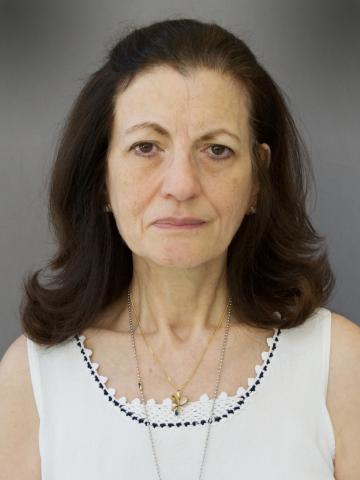Solange Abdulnour-Nakhoul, PhD, AGAF
Associate Professor-Gastroenterology

Education & Affiliations
Areas of Expertise
Research
The main focus of the research in my lab is to understand the mechanisms by which the esophagus is protected from acid injury. The long term goal of the work is to elucidate how esophageal protective mechanisms are regulated in order to advance strategies to prevent and treat gastro-esophageal reflux disease (GERD). GERD affects up to 20% of the national population, and in some patients, untreated and chronic GERD develop into more serious diseases, ranging from erosive esophagitis to Barrett's esophagus and cancer of the esophagus.
Two important protective mechanisms are evident in the esophagus. First, the squamous cells of the esophageal epithelium, like other epithelial cells, are connected by junctional complexes that limit and regulate paracellular diffusion. This function is essential to maintain the integrity of the barrier and prevent diffusion of acid and other noxious material to the basal layers. Second, the esophagus contains submucosal glands, which secrete HCO3- and mucin; these substances protect the tissue by maintaining a lumen-to-surface pH gradient at high luminal acidity. The research in my lab is focused on the cell membrane receptors and molecular mechanisms that regulate the formation of cell-cell junctional complexes in the squamous epithelium and on the cellular mechanisms of bicarbonate secretion from the glands.
Another project in my lab is focused on changes to esophageal cells in an allergic disease of the esophagus, eosinophilic esophagitis (EoE). We are studying the morphological and functional transformations caused by EoE in response to the inflammatory process and to infiltration with eosinophils.
We use a combination of techniques, including HCO3- secretion measurements, intracellular pH and Ca+2 measurements, electrophysiological techniques, immunohistochemistry, Western analysis, immunoprecipitation, and qRT-PCR. These studies are performed using animal models and preparations ranging from tissue cultures to the whole esophageal organ. The study on eosinophilic esophagitis is done in human biopsies.
Contributions
PubMed listing for Dr. Solange Abdulnour-Nakhoul.
